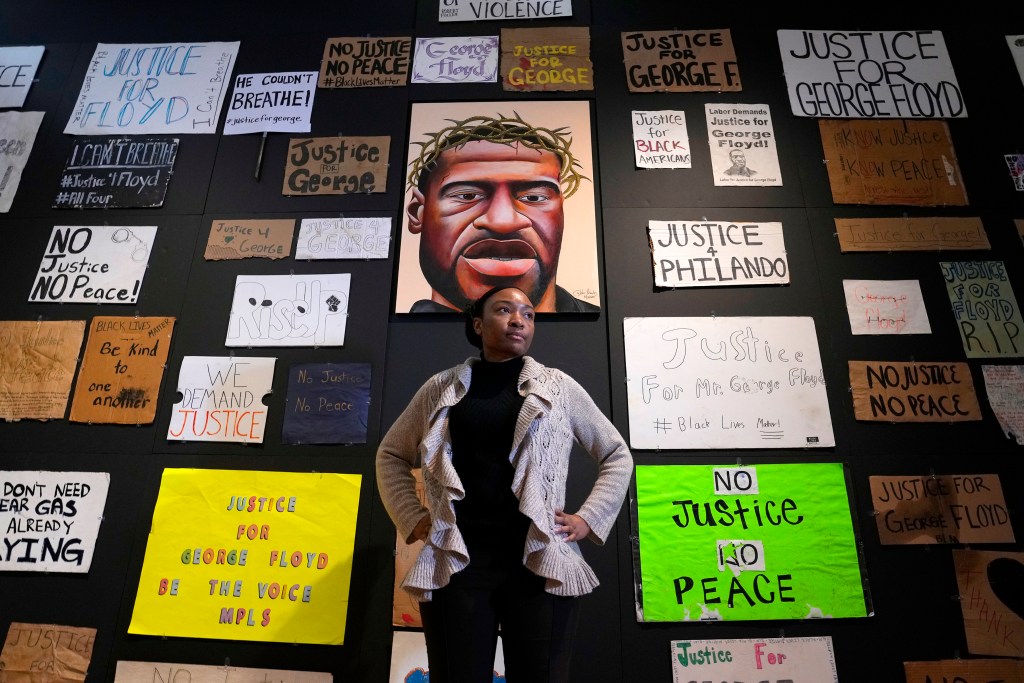Not so ‘Good Times’
Good Times animated show. Credit Netflix
As an artist, I hate bashing other artists….but I need help understanding what in the entire ‘Dy-no-mite’ universe prompted executives to sign off on the Netflix animated show “Good Times?” I’ll admit, I tried not to judge the show, which is based on the popular 70s show of the same name. But the first episode begins with a lead character singing the original “Good Times” theme song in the shower with a roach, so I quickly tapped out. I couldn’t process who thought this was good (And this from someone who loved “Boondocks”). I thought it was just me. But not only did some of the stars of the original (John Amos and Bernadette Stanis) blast the show, but a coalition of civil rights and faith leaders held a protest this week outside Netflix’s corporate offices. They say the series “promotes the worst negative stereotypical images of African Americans and our culture in the history of television. It makes a mockery of African Americans and depicts them as dumb buffoons, drug dealers, drug addicts, and gun-toting violent gang members trying to kill each other.” An online petition to ban the show, far surpassed the 1,500 signatures organizers were seeking. The original “Good Times” cast members Amos and Esther Rolle battled with the white producers and writers for the show to stop depicting African Americans as buffoons and many believe the animated series is everything that Amos and Rolle fought against.The 10-episode series is a collaborative production effort involving Norman Lear’s Act III Productions, Sony Pictures Television, Fuzzy Door Productions, and Unanimous Media.There is some amazing Black talent on board with this project, and I’m not going to judge them….but I am side-eyeing this project as a whole and hoping there will be something redemptive about the project….though y’all will have to tell me because I won’t be watching.
Conservatives come for George Floyd Memorial Scholarship
 Jeanelle Austin, director of the George Floyd Global Memorial, pauses during the installation of “Twin Flames: The George Floyd Uprising from Minneapolis to Phoenix,” at Arizona State University Art Museum. A Conservative Group is trying to end a scholarship honoring Floyd. Credit: AP
Jeanelle Austin, director of the George Floyd Global Memorial, pauses during the installation of “Twin Flames: The George Floyd Uprising from Minneapolis to Phoenix,” at Arizona State University Art Museum. A Conservative Group is trying to end a scholarship honoring Floyd. Credit: AP
In the wake of the Supreme Court’s blow to affirmative action in higher education, it was anticipated that conservatives would amp up their efforts to undermine programs designed to assist marginalized groups. Now, the George Floyd Memorial Scholarship, established to support Black students at North Central University in Minneapolis, faces a legal challenge from the Legal Insurrection Foundation. This conservative group asserts that the scholarship violates the Civil Rights Act of 1964 by allegedly discriminating against non-Black applicants.
The scholarship, founded in 2020 to empower a new generation of Black leaders, provides full tuition for four years to a deserving student annually. Yet, despite the Supreme Court’s silence on race-conscious scholarships in its previous ruling, colleges have begun dismantling similar initiatives in its aftermath. The complaint targets the school for “invidious discrimination,” calling for an investigation by the Department of Education’s Office for Civil Rights. The group’s ultimate goal is to potentially revoke federal financial assistance to the university. Although the Department of Education has yet to publicly respond, the implications of such challenges are profound. Last year, the Fearless Fund, aiding minority women-owned businesses, faced similar scrutiny. Led by figures like Edward Blum, who played a pivotal role in dismantling affirmative action, these attacks on diversity initiatives persist. While the George Floyd Memorial Scholarship remains intact for now, the broader pattern of assault on programs supporting marginalized communities demands attention. It underscores the ongoing struggle for equitable access and opportunity, highlighting the imperative of defending initiatives crucial for fostering diversity and inclusion in education.
Is the Oyster Hut over?
 Lynn Price’s pop-up oyster shop was a hit with Houstonians. Credit: IG/TheOysterHut
Lynn Price’s pop-up oyster shop was a hit with Houstonians. Credit: IG/TheOysterHut
Amidst allegations of recipe theft and outstanding payments, the collaborative venture between The Oyster Hut and Tiger2Dozen has apparently come to an abrupt halt. Royal Bellock and his fiancée Jackquel Johnson have withdrawn from the oyster pop-up situated near the Turkey Leg Hut in, citing grievances against Lyndell “Lynn” Price. The dispute arose when Bellock and Johnson claimed that Price, who initially invited them to introduce their Tiger2Dozen concept to Houston, replicated their menu and recipes for the newly launched Oyster Hut. Additionally, they allege that Price owes them close to $3,000. Price utilized his extensive social media presence, boasting over 220,000 Instagram followers, to promote the pop-up as a taste of New Orleans for Houston residents. The inaugural weekend witnessed significant success, with Bellock serving nearly 1,200 oysters to eager customers enduring lengthy queues of up to three hours. Officials with The Turkey Leg Hut (TLH) want to make it clear…they have nothing to do with this oyster endeavor…or the drama with Price, who was fired from TLH earlier this year. I hate seeing Black businesses tainted with drama…and I’m sick that I missed out on those oysters.



